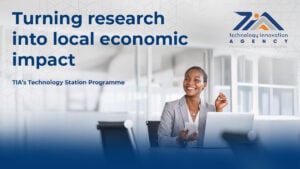Storm brewing for one of South Africa’s biggest companies

Trade union Solidarity has issued a legal letter to Bidvest over the company’s school bursary programme, which excludes white children as it is only open to Black, Indian, and Coloured families.
On 9 July, Solidarity issued a legal letter demanding that Bidvest amend the programme before 25 July.
The bursary is available to full-time Bidvest employees earning less than R15,300 per month before deductions and supports their children from Grade 4 to Grade 12.
It covers school fees, stationery from Waltons, school uniforms, and extra classes. However, white employees in this income bracket are excluded.
Solidarity’s chief executive, Dirk Hermann, argued that this racial exclusion is not only morally indefensible but also unconstitutional and in breach of both local and international labour laws.
“A white employee earning less than R15,300 has precisely the same challenges with their children as a black employee,” said Hermann.
He noted that any employee earning this income, regardless of race, creates huge challenges in creating excellent educational opportunities for their children.
“What Bidvest is doing for black children is noble, but what they are doing to white children is racist.”
Solidarity claimed that because the bursary forms part of an employee benefits programme, it cannot be restricted based on race.
“There cannot be an absolute barrier for certain employees based on race,” Hermann said. “Neither the Labour Relations Act nor the Employment Equity Act provides for employees to receive different benefits according to race.”
According to Solidarity, the bursary fails the test of fairness and goes beyond what the Constitution and empowerment laws ever intended.
“The programme goes beyond the constitutional intent of any empowerment law. The intent could never have been to discriminate against children of parents who earn a low income,” Hermann said.
The union also raised concerns about the programme’s alignment with international law, citing several United Nations resolutions and reports that discourage the use of rigid racial quotas and encourage class-based approaches to redress.
“The United Nations also recommends that remedial programmes should be class-based,” Hermann explained.
“A case where a low-income threshold is used is ideal for an approach based on class or needs. White employees would be a small minority in this specific class. Including them would be morally right and within the law.”
The programme in line with the BEE laws

Solidarity said it hoped Bidvest would voluntarily change the programme before the deadline, but indicated that further legal action would follow if it did not.
Responding to Solidarity’s initial outcry before the letter was issued, Julian Gwillim, CEO of Aprio Strategic Communications, explained the programme on behalf of Bidvest.
He said the bursary is funded through the Bidvest Education Trust, previously known as the Dinatla Trust, which was established in 2003.
He explained that the Trust formed part of a broad-based black economic empowerment consortium, Dinatla, which owned 35% of Bidvest.
“In line with the B-BBEE Act 53 of 2003, the Trust was formed for the sole purpose of uplifting Historically Disadvantaged Individuals who are employees of the Bidvest Group,” Gwillim said.
He added that the bursary programme has been in place for over 22 years and has significantly impacted the lives of employees and their families.
“It has been operational for over 22 years and very successful in changing the lives of our employees and their families,” he said.
Gwillim stressed that Bidvest is committed to transformation and inclusion as part of its obligations under South African law.
“As a South African company, the Bidvest Group will continue to work toward advancing workplace equality and inclusion,” he said.
“We not only comply with, but fully endorse and support, the principles and objectives of the policies and laws of our country that are fundamental to achieving our collective economic and social ambitions.”




















